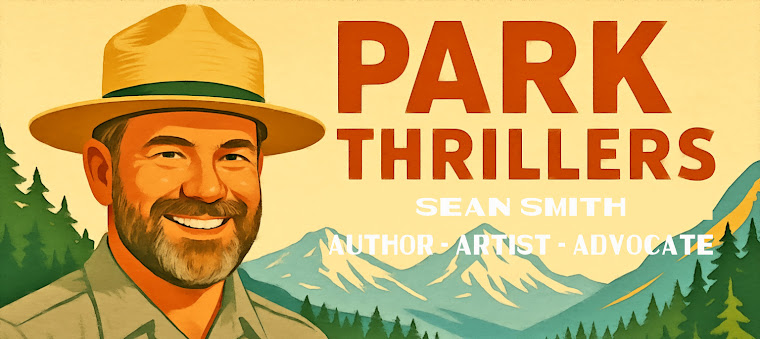 |
Old Faithful Geyser and spectators,
Yellowstone National Park, Acroterion | |
This past year was big for national parks and national park system including the establishment of new park units, record visitation, and huge wildfires. Here in no particular order, are the top national park stories of 2015.
1. New National Parks: The creation of new national park units was a top priority for the President this past year. Along with
Pullman Historic Neighborhood, Browns Canyon, and the Honouliuli Internment Camp site, the federal government also created
Manhattan Project National Historic Park. These parks preserve some of our most threatened landscapes, protect former slave housing, tell of the story of the world's entering the atomic age, and help us never forget the internment of some of our fellow Americans. National Parks preserve and protect not only what we hold dear, but also some of our are hardest lessons.
2. Record Visitation: The national park system saw a record number of people coming through the park entrances. As of the start of this month, the national park service had welcomed more than 272 million people and was on pace to see more than
300 million people for the first time in its history. These numbers are up nearly 4 percent from last year. The park service broke visitation numbers despite a shaky economic recovery, terrorism threats, and the belief that they are no longer relevant. The public seemed to vote with their feet this year, that not only are parks relevant, they are more loved than ever.
3. Huge Fires: Another number that was up this year was the cost of
fighting wildfires. The federal government spent more than $1.7 billion fighting fires across the country this past year. This is up more than $100 million from 2014.
Fires raged throughout much of the country including large fires in
Montana,
Alaska,
Washington, and
California. Sadly, 2015 was a deadly fire season seeing seven firefighters killed battling the blazes. Congress is responding to the crisis by proposing additional
federal resources to fight these monster blazes.
4. Politics: Like any other aspect of our lives, the national parks are no refuge from political fights and squabbles. This year, the battles over the confederate flags spilled over into our national heritage. Debates over how to correctly portray civil war history including Confederate efforts were hotly debated. Confederate
memorials and
Statues were removed across the south. The effort reached a crescendo with the removal of the confederate battle flag from the
South Carolina state house grounds. The park service also struggled with how best to convey Civil War history, without being seen as promoting or making light of the South's complicity in the promulgation of Slavery. In response, the Park Service ordered the removal of
confederate flag merchandise from its gift stores. It's likely the debate over the South's role in the civil war will continue. The flag flap is a reminder that national parks are often on the front lines on how America represents, honors, and tells its story. The park service will likely be called repeatedly to provide leadership on many socially and politically controversial issues.
5. Centennial: The national park system will turn 100 years old next year. As such, the park service is rightly making plans to celebrate the milestone. As well as,
16 free days, the park service is planning countless events,
specials, parties, and celebrations to mark the centennial.
Yellowstone is the worlds first national park, and Americans can be rightly proud of the national park system they have created since then. Park thrillers is looking forward to the next hundred and can't wait to see what's in store for our national parks.
Okay, that's our list of the top National Park Stories for 2015. What did we get right? What did we miss? Tell us in the comment section. Also, please check out the national park thrillers
Unleashing Colter's Hell and Lost Cause, two of Amazon's top selling political/terrorism thrillers.
Sean Smith is a former Yellowstone Ranger, and an award winning conservationist, TEDx speaker, and author. He writes national park thrillers from his home in the shadow of Mount Rainier National Park. To learn more about his thrillers click here or follow him on twitter: @parkthrillers
 The Trump administration recently announced that its proposing to remove federal protection for the gray wolf. If this action goes through, the management of the nation’s wolf packs would devolve to inconsistent state control. Some states have already signaled they will work to dramatically reduce wolf packs, going so far as to authorizing needless trophy hunts.
The Trump administration recently announced that its proposing to remove federal protection for the gray wolf. If this action goes through, the management of the nation’s wolf packs would devolve to inconsistent state control. Some states have already signaled they will work to dramatically reduce wolf packs, going so far as to authorizing needless trophy hunts.







